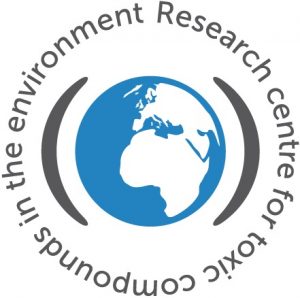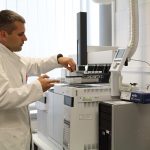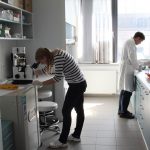RECETOX  – website
– website
Hosting institution: Masaryk University
The RECETOX Research Infrastructure addresses problems related to the Environment and Health. Environmental and human exposures to toxic chemicals, their effects, and related risks are assessed as a part of the multidisciplinary research on factors affecting human health. Research capacities of core facilities of the RECETOX Research Infrastructure (environmental monitoring networks, population studies and biobanks, trace analytical laboratories, database and information systems) bring together interdisciplinary expertise on environmental science (chemistry, technology, toxicology, environmental and human exposure, impact and risk assessment and modelling), biomedicine, biostatistics and informatics. Research Infrastructure provides an access to data and capacities of its flagships, the MONET (MOnitoring NETworks), CELSPAC (Central European Longitudinal Study on Parents and Children) and GENASIS (Global ENvironmental ASsessment and Information Systems) long-term programmes while offering a rapidly developing portfolio of expertise and services to multiple users. RECETOX collaborates on the long-term basis with UNEP (United Nations Environment Programme) and WHO (World Health Organisation) and is a lead partner of GEOSS (Global Earth Observation System of Systems) initiative of GOS4POPs (Global Observation System for Persistent Organic Pollutants).
Future development
The MONET monitoring networks will be expanded from the atmosphere also to the aquatic environment. The CELSPAC Population Study will include the next generation of newborns and a new biobanks capacity will be built for long-term sustainable storage of rare biological samples. Further to the development of epidemiological studies, laboratory capacity will also be expanded. The accredited trace analytical laboratories support a wide range of environmental and human exposure studies. Development of new multiresidental and non-targeted analytical methods and will enhance synergies between chemical and toxicological methods of evaluation of toxic mixtures. To understand the relationship between environmental exposure and health effects, methods for the study of epigenetics, netabolomics, proteomics and human microbioma will be further developed. The GENASIS and GMP (Global Monitoring Plan) data warehouse completed as a tool for visualization of data from global monitoring programs will be transformed into data collection, management, and evaluation and visualization tool for on-going and monitoring programmes and linked to GEOSS. A platform supporting work with large data sets, biostatistic and bioinformatics tools for data analysis and interpretation, and prediction models for exposure estimation, risk analysis, and long-term trends will be developed.
Socio-economic impact
Interdisciplinary expertise of RECETOX Research Infrastructure offers potential for addressing the most relevant European research priorities and societal challenges. Data on environmental, social, economic, and other health-affecting factors collected the last quarter century and available through open-access to professionals, policy makers as well as a general public provide a valuable source of information on the rapidly changing Central/Eastern European societies and are the basis for the creation of European policies in the field of chemicals management, environmental risks and health. Commercial sector can potentially use the research results created with the help of RECETOX in a process of development of new technologies required for implementation of the circular economy concept (towards improved resource efficiency, waste management, and recycling). New scientific knowledge is immediately transferred not only to environmental practice, but also to higher education, the international training of scientists and experts and the building of new research capacities in partner countries.



